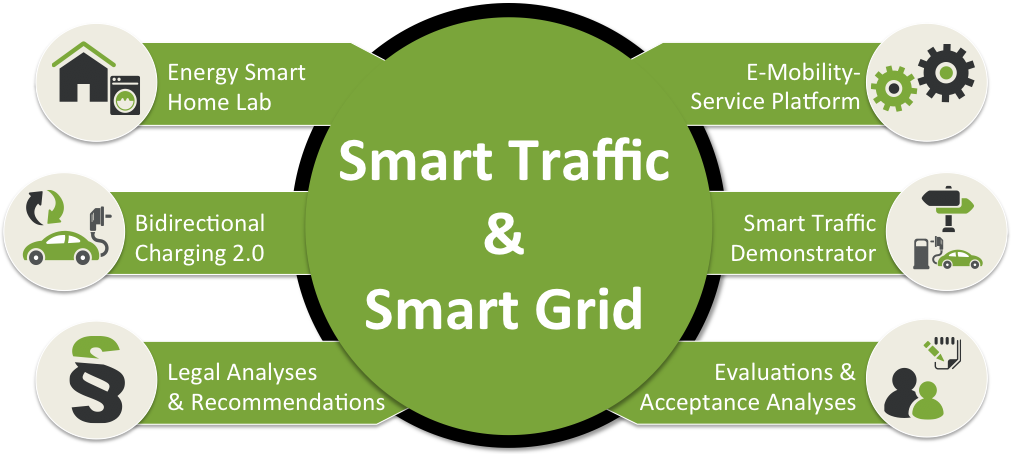iZEUS – Smart Grid and Smart Traffic Services for Electric Mobility
Partners of research and industry have joined the intelligent Zero Emission Urban System – iZEUS - project with a view to enhance research, development, and practical demonstration in the fields of smart traffic and smart grid. The project is being funded with about EUR 20 million by the Federal Ministry of Economics and Technology under the initiative Information and Communication Technologies for Electric Mobility II. The project was launched in January 2012 and will be completed in mid-2014. It directly succeeds the successfully completed electric mobility project MeRegioMobil.
Work at KIT focuses on two main activities: Further development of the Energy Smart Home Lab and support of the fleet test.
Energy Smart Home Lab
- Intelligent charge management with an electric vehicle capable of feeding electricity back into the grid based on the new ISO/IEC 15118 standard
- Optimization of the load behavior by smart control of electric/thermal household appliances and an electric vehicle capable of feeding electricity back into the grid based on an adapted energy management system (EMS)
- Living phases to validate optimized and user-friendly EMS approaches, the focus lying on energy flexibility and the execution of acceptance studies
- Quick charging of electric vehicles without adversely affecting the grid using additional stationary energy stores
- Development of a charge current converter to test the compensation of e.g. harmonic and deformed power
- Use of a four quadrant chopper for grid simulation and analysis of unusual grid states, e.g. power oscillations and short circuits
- Further development of incentive concepts for the optimum use of renewable energies in connection with electric mobility
Fleet Test
- Development and supply of an open e-mobility services platform as an interface and data exchange system for project partners and users in the fleet test
- Design and test of various mobility services of added value, such as energy-efficient routing, finding and reservation of nearest charge columns or visualization of the remaining range
- Development of a smart phone app as an interface between users and the services platform for interactive participation in the fleet test
- Technical and economic analysis of the energy system and sociological research into customer acceptance and user behavior in the fleet test (the focus lying on commercial traffic)
- Analysis of legal and economic framework conditions in terms of data protection, calibration legislation, and law of evidence relating to the demand side management of electric vehicles as well as derivation of political and normative recommendations for action

